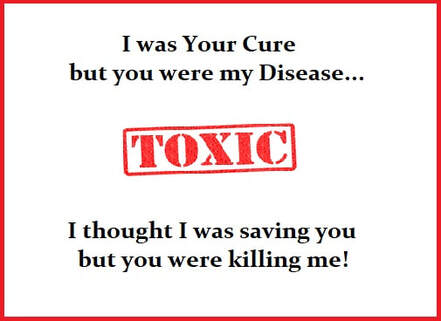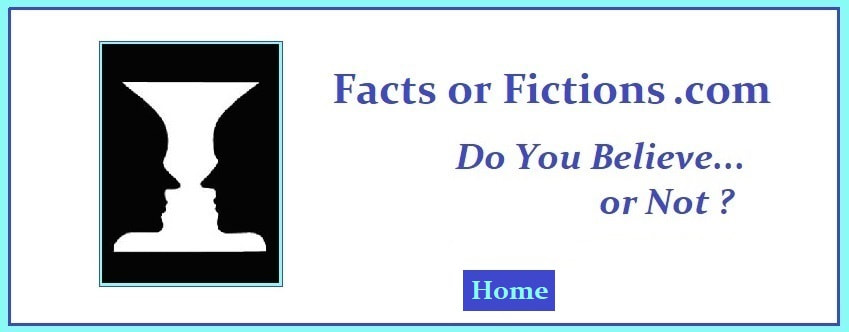
Toxic Relationships
The Good,
the Bad,
the Ugly
It was instant chemistry.
To him she was a dream prize. Popular. Smart. Attractive. A real catch. But he was one of the "bad boys" in school. Irresponsible. Barely making it. Unreliable. Reputation of partying.
Still though, she found that he had a strange attraction about him. And he gave her attention. And he was popular with his own friends. And he had a more "exciting" life…. or so she thought at first.
So they started dating. And at first she was happy, despite what her parents and friends said. They tried to warn her about him. But they seemed to get along fine. And she knew she could change him so that his "little character flaws" would self-correct… she knew that in time and with her help he would become more responsible.
Fast Forward to today. Here is what happened:
1) Either he self-corrected, became responsible and they lived happily ever after;
2) (Or) she threw in with his friends and became like him, with a low quality lifestyle, unemployed, using alcohol and drugs, always in debt, and in a day-to-day grind and chaotic lifestyle not knowing what is happening next, (or),
3) (Or) she finally understood that attractions were neither real nor predictive of the future of a relationship, and they had certain incompatibilities that she should have foreseen and understood. Others did. They divorced in a messy and ugly manner leaving both people hurt and scarred for life.
Toxic Relationships Do Impact Upon the Quality of Life
Everyone needs friendships, and healthy friendships are one of the key elements for satisfaction and happiness in life. Toxic relationships, though, both in friendships and relationships, are exactly the opposite.
While different for everyone, for a high quality of life a person should have relationships that bring fulfillment, stability, and contentment for life satisfaction. Quality of life really is not dependent upon one’s degree of wealth or material possessions. It is more dependent upon the relationships a person has - at work, in the family and friendships, and the degree of intimacy and satisfaction they bring into a person’s life. This in turn depends upon the characteristics a person has - values, actions, ways he/she treats people, much more than the prestige they have, money or power, or outward "beauty" or attractiveness. In fact, these can be tremendously misleading characteristics for long-term friendships and relationships.
According to psychologist, Dr. Lillian Glass, author of Toxic People, a toxic person is "anyone who manages to drag you down, make you feel angry, worn out, deflated, belittled or confused."
Healthy Relationships
Healthy relationships support, encourage, inspire, and help one to improve and develop in a natural and functional manner. Healthy relationships are not just desirable, they are essential to human growth and development - and satisfaction and fulfillment in life. They show kindness, spontaneous warmth, affection, trust, acceptance, understanding, and mutual support and encouragement. In healthy relationships, one feels safe, valued and respected.
In contrast to healthy relationships, are toxic relationships. More often than not, these are emotionally abusive sand include mind games, put downs, playing the blame game, instilling guilt, manipulating, lying, guilt instillation, and even telling jokes which are really disguised humiliation. One hallmark feature of toxic relationships is that they tend to drain people of energy and inflict pain.
Signs of Toxic Relationships
There are many different types of toxic relationships. While many are easily identifiable such as outright abuse or rigid control over the family money, others are less easily identifiable.
According to “25 Ways to Tell if Your Relationship is Toxic”, (Kathy Reed O’Gorman), there are several signs to tell if one may be in such a relationship. One sign of being in a toxic relationship is a person is put down verbally, either in private or in front of others. Another sign is if one finds oneself crying often or feeling depressed over a relationship. Other signs include a feeling of being afraid or unsafe, afraid to speak the truth at times for fear of upsetting a partner, feeling out of control of your life, or having a lower self-esteem since they have been with that partner.
Often you will meet a person who is manipulative, overly grandiose - always bragging or boasting about himself or herself, self-centered, or who gives false praise or flattery. Toxic people may be people who cannot admit their faults or flaws or admit to a mistake. Toxic people tend to complain, blame or deflect onto others. They may be habitually late or cancel appointments. They may show little compassion for others. They tend to gossip. They show little interest in you or others. They constantly criticize. They may be judgmental. They always seem like they are angry. They don't know boundaries. They tend to be users, not givers.
Toxic relationships are not always so overtly abusive. It does not necessarily need to be outright physical or mental abuse. Often the negativity, criticism, power and control, dependency needs, or other manipulation can be subtle. Even as such it is still real and very pervasive, and still toxic for a person in that type of relationship. One way to tell if you are in a toxic relationship is if you have a feeling that you have been "violated" when engaging with this person - that they are playing games, not keeping their word, or belittles or speaks negatively about you or your friends.
It is important, however, that you do give people a chance. No one is perfect, and many times these are normal traits in a person's particular stage of growth and development. The difference, however, is that toxic people demonstrate a "pattern" that does not change and mature. And the cumulative effect on you may be quite severe - often without you even noticing it. Toxic people have a pattern of these characteristics, and they can be quite strong and unyielding.
What to do if in a Toxic Relationship
The best advice is prevention, strive to avoid toxic relationships altogether. When one first enters into a relationship, “test” for compatibility issues to see if it is a complementary relationship. If not, the relationship should end immediately not prolonged.
If one finds oneself in a toxic relationship and chooses not to leave, then entering into personal or couples counseling is a primary objective. There are also relationship support groups available that can give support and help teach coping mechanisms.
Depending upon the circumstances it may be suggested that a person not stay in a relationship that hurts. If this is the case and one decides to end the relationship seek support and assistance and make preparations and follow through.
Of course in any case if there is real physical abuse or a life threatening situation, the individual must immediately reach out for professional assistance, make plans, and leave to find a safe haven.
A healthy relationship lifts and elevates and is one of the most enjoyable and fulfilling aspects of a quality life, but a toxic relationship - no matter how strong a person is - will bring one down and can even destroy a person or a family.
Especially in today’s world, one needs to choose wisely.

